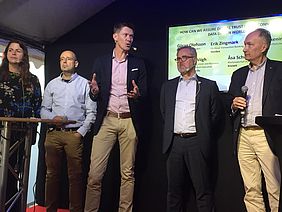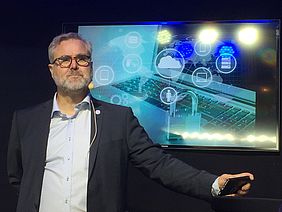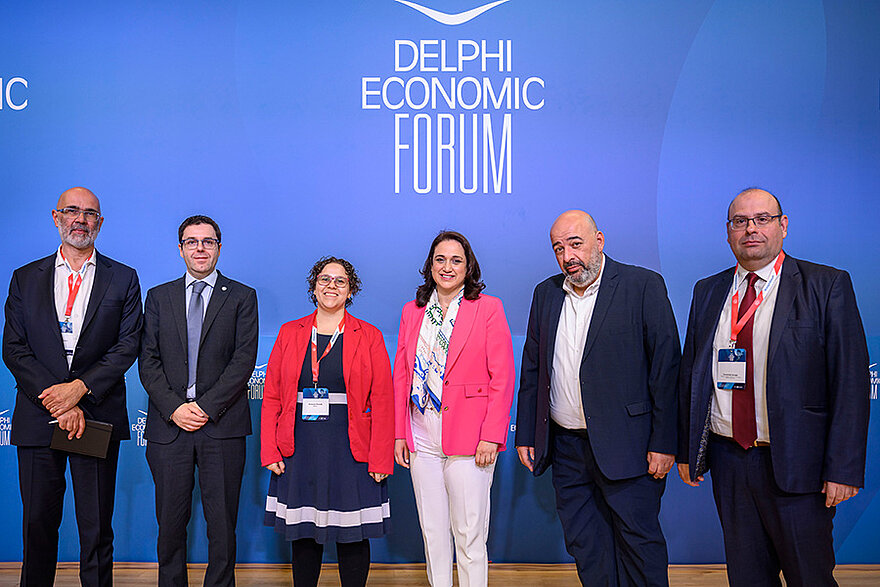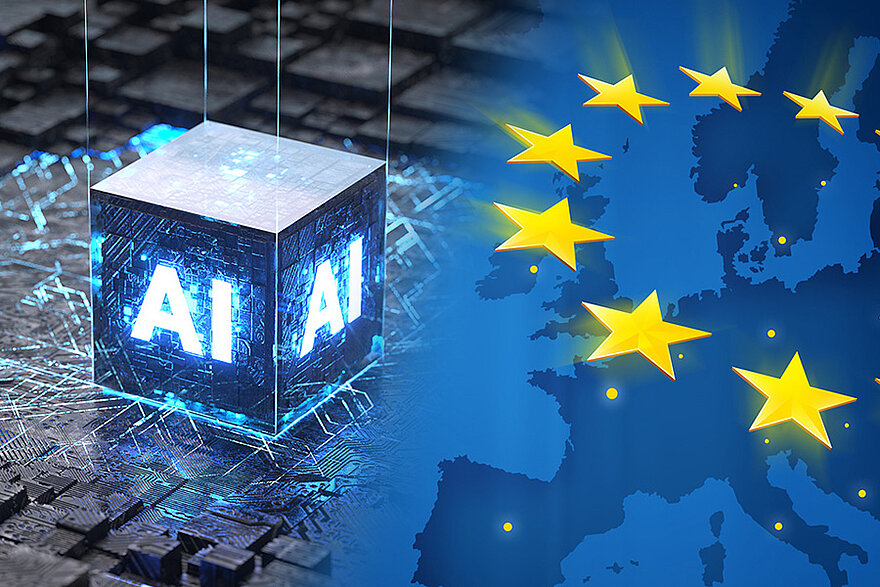EIT Digital hosted a panel on "Digital Trust" as part of Almedalen Week - "Almedalsveckan", also known as the "Week of Politics" - is an annual event taking place in and around Almedalen, in the town of Visby on the Swedish island Gotland. Approximately 40, 000 visitors, representing all key players in the Swedish society (political parties, central and local government, business life, academia, non-government organisations) attend the event this year.
The opening statements of the EIT Digital panellists at the Swedish Almedalen Week of Politics, is easy to crystallise as follows:
"We should be worried, but things can be done to maintain and improve digital trust."
The EIT Digital panel was organised under the title "How can we assure digital trust in the connected data-driven world?" together with the leading Swedish Business Weekly, Veckans Affärer. The panellists represented the Swedish or Nordic branches of IBM, Microsoft, Nordea Bank and Knowit.
EIT Digital Stockholm Node Director Göran Olofsson reminded the audience that the goal to achieve maximum digital trust is a moving one, and unfortunately, attacks and breaches will happen also in the future. Daniel Akenine, National Technology Officer, Microsoft Sweden said that therefore it is important to minimise the losses as much as possible. This can be done both technically and with education. He continued:
"In the future, we will see differences on how organisations can handle smaller or bigger digital issues. These will happen, but organisations' capability to handle them will separate the good from the bad, and give a competitive advantage to the good ones."
Digital trust is sustainable
Many organisations have understood the value of digital trust for their business sustainability, and have started to communicate security as their competitive advantage. Erik Zingmark, Co-Head Transaction Banking, Nordea said:
"Especially, the banking industry is essentially founded on trust: if we lose customers' trust on that we can manage their money, it is a death sentence for us all. Hence, future services must handle privacy much stronger than today. What banks can do, is to make as easy as possible to use their services securely."
As organisations have already scaled, and will continue to scale up, their technical protections, it has come often easier to penetrate the security via individual employees than trying to breach the security systems. To prevent this from happening, the rank-and-file users, as well as consumers, are required to manage the security aspects, not just the IT department.
Digital trust springs from small everyday actions
Åsa Schwarz, Head of Sales and Marketing and Security expert, Knowit Secure AB, pointed out that the public discourse on cyber-security and digital trust often focus on military-type issues, while to the average citizen digital trust is more that all aspects of their life work: water comes from the tap or money from ATM, electricity is available and commuter train is operating.
One material problem is that here is no real punishment for not executing proper digital security in consumer products. On top of that, people do not know how digital services work and do not understand the consequences of not knowing the proper use.
The panel agreed that to maintain the digital trust, the entire population must be educated to understand its meaning and the consequences in failing. To achieve this, a lot of security consultancy and education work will be needed.
But no single campaign will make it: there must be the education of masses, capability lift-up and common people talking to each other. Schools should start cybersecurity training as early as possible, as the today's children, born in a "ready" digital world take the services as granted and may not consider security aspects, like sharing openly their private email addresses.
Åsa Schwarz continued by saying that a sense of urgency must be created to reach this:
"The first thing is that we talk the topic in nationally top-interest events like here in Almedalen, and so place it on the national agenda. One other excellent way is to take cyber-security and digital trust to the personal level, by asking people to think what will happen to their family, if their password is leaked. People might not be so worried about what their employer might loss, as what would happen to their loved-ones."
After the panel Node Director Göran Olofsson was happy:
"We set our target as to define how to assure digital trust in our connected data-driven world. Indeed, many tangible proposals were reached. This panel will act as a great platform for us to continue the discussion here in Sweden, and show how EIT Digital is capable of delivering concrete ideas for better digital trust, benefitting not just the Sweden, but the entire Europe."
Panellists included: Göran Olofsson (Node Director Sweden EIT Digital) Daniel Akenine (National Technology Officer, Microsoft Sweden), Åsa Schwarz (Head of Sales and Marketing and Security expert, Knowit Secure AB), Lars Wiigh (European Union and Business Development Executive, IBM Nordic) and Erik Zingmark (Co-Head Transaction Banking, Nordea). The panel was moderated by Veckans Affärer Chief Editor Åsa Uhlin.








